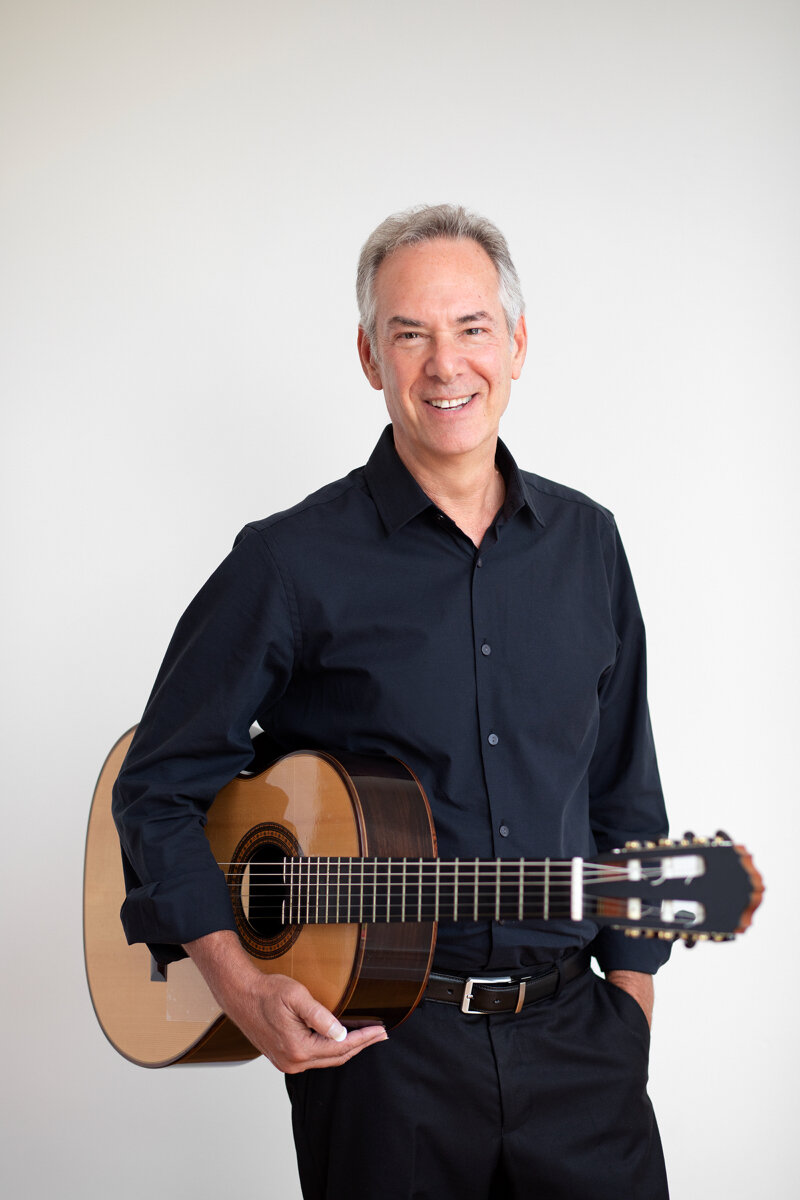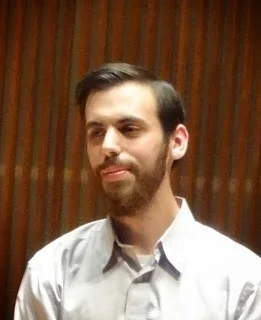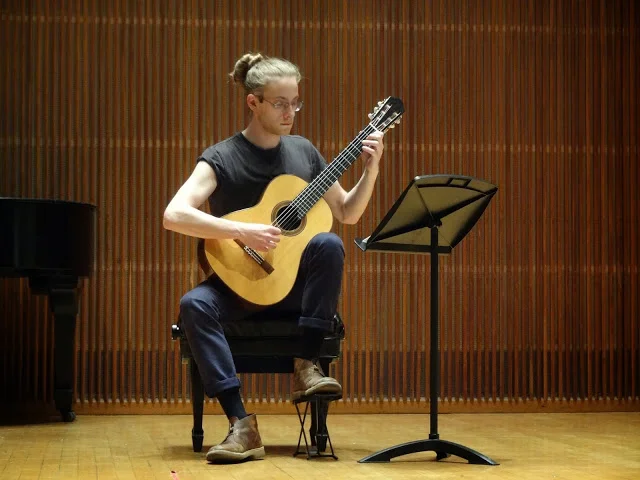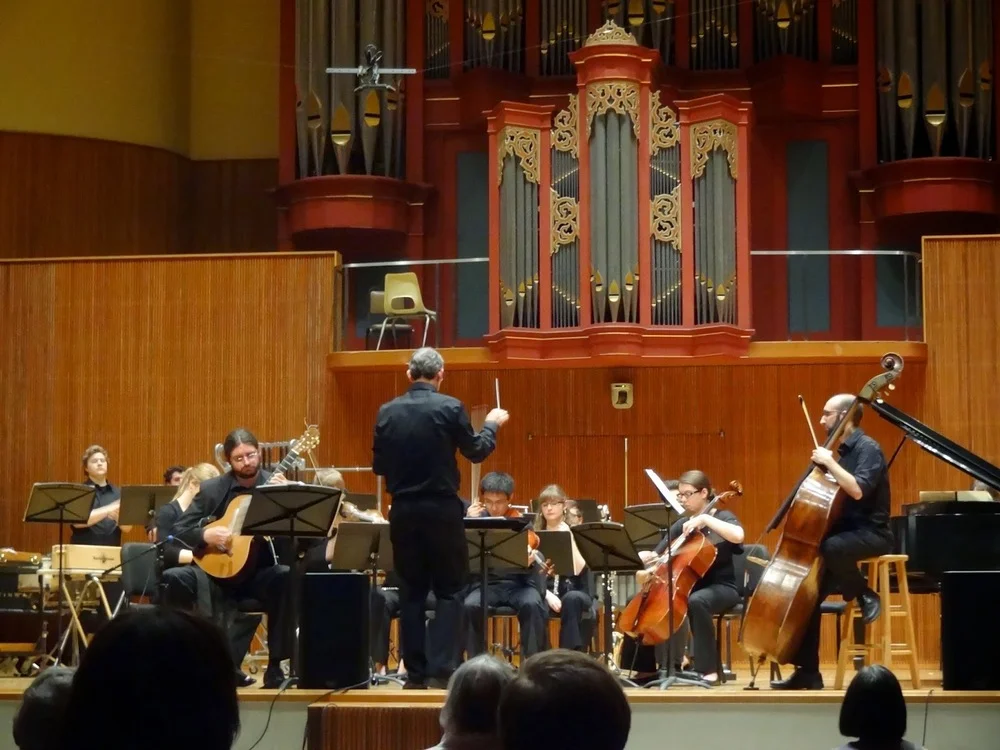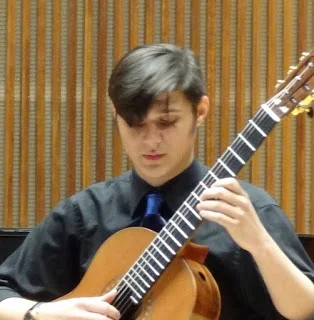2015 Stroud Classical Guitar Entrepreneurship Awards Announced: $5,000 Awarded
As I posted here earlier this semester, we have a new merit award at Oberlin Conservatory for classical guitar majors. Dubbed the Classical Guitar Entrepreneurship Award and named after its founder, James Stroud, its purpose is to encourage students to think broader than conventional studies would normally have them do and to reward action taken. I offered a list of possible activities they might engage in, corollary to practicing and performing, which might improve their resumés. The
original post and full list are here
.
The year has ended and the awards have been made. They are as follows:
Leonard Ranallo: $1,500

Lenny formed a duo with Jacob Blizard (see below), for which he made an original arrangement; they prepared and played a full duo recital in addition to their solo programs. He produced and recorded an EP for the group Dharma Bums, as well as laying down electric guitar tracks for the groups The Chum Buckets and The Conductor and for Andrew Seligson. He played additional gigs as a soloist and with Flutocracy; he gave two premiere performances. Lenny teaches summers at the Amherst School of Guitar in Buffalo as well as maintaining several private students on campus. He played in an external masterclass, took lessons on Renaissance lute, jazz guitar and Choro and attended lectures/workshops with the Punch Brothers, Magda Giannikou and Matthew Hinsley. He has a YouTube channel and a website. In addition, Lenny was President of the Oberlin Guitar Club, singlehandedly managing all paperwork for the club's busy schedule.
Jacob Blizard: $1,500

Jacob made four original arrangements for guitars, two of them for his duo with Lenny Ranallo (see above); this duo performed a full recital soon after his required solo recital. Additional performances included providing music for a trapeze act, a dance concert, a Thanksgiving celebration and nine performances as pit guitarist for Jesus Christ Superstar; he also played several gigs with a flutist. Jacob gave five premiere performances including solos, chamber works and a chamber opera. He played in two external master classes; he tutored music theory; he maintained a private teaching studio of eight students, and he started Guitar Forum (a weekly studio performance opportunity). He arranged, produced and performed on a full-length CD by singer-songwriter Lucy Dacus and co-produced and played on an EP by Max Capistran, both in Nashville. He created and hosted a radio show dedicated to classical guitar on Oberlin's WOBC. He maintains his own website.
Stephen Fazio: $1,000

Stephen played several high-profile guest recitals, including a faculty recital in Avon, one at Kendall at Oberlin (much coveted), and a feature appearance on the Cleveland Classical Guitar Society's "Rising Stars" series. In addition, he secured several more recitals for this summer. He gave the premieres of two new works, including one for a Cleveland Composer's Guild concert. He maintains a studio of 10 students at the Avon School of Music, gave an outreach concert at a high school in Cleveland and took a course through Case Western Reserve Univ. to get certification as a "Youth Professional," in preparation for doing an Artist in Residence series in Cleveland public schools next season.
Max Lyman: $500

Max wrote numerous pieces for guitar and fixed media; he wrote, recorded and released a 3-song EP with the band The Blood Pact; he premiered a new student chamber work; he performed a new piece for guitar and field recording at N_SEME at Bowling Green State Univ.; and he inaugurated a music performance series at the Oberlin Museum.
Mohit Dubey: $500

Mohit gave several collaborative performances with musicians, dancers and more; he taught a master class at the NM School of the Arts; he took some external lessons and master classes; he made three original arrangements for guitar solo, duo and trio; he wrote on the arts for the Oberlin Review; he established an artist page on Facebook, an artist channel on YouTube and made his recordings available on Spotify, ITunes and Bandcamp; he worked to refurbish a music room at a community facility in Detroit; and he gave weekly performances for patients at the local hospital.
When canvassed, most of the students said that the presence of the Entrepreneurship Award had no impact on their decisions about what (or how much) to do this year. I'm not sure this is absolutely true (who wants to be seen as doing it "for the money"?), but even if it is, I expect, now that the cash is in hand, they will feel the motivation more powerfully next year. Of course, my desire is to see them engage in the kinds of activities that will give them better resumés. Everyone who graduates from the Conservatory can play; most of them extremely well. But what else can they do? Can they teach? Can they compose and arrange? Can they work effectively with others? Can they follow a conductor? Can they read the kind of charts Broadway shows come with? Have they worked in the press, on radio or tv? Can they play other related instruments and styles? Have they recorded and video-recorded themselves? Have they established themselves online with websites, YouTube channels, etc.? The Entrepreneurship Award will, hopefully, lead to deeper experiences in the music business for all the students, giving them all bigger footprints in the industry, and lead to more, and more varied, relationships with more people. In the background, of course, they'll all still be doing the normal things: practicing, rehearsing, preparing for classes, giving required recitals, etc. But in addition, they'll more bravely take on other, unique and personally interesting projects and challenges. I look forward to seeing where it leads.
Many thanks, once again to James Stroud for his generosity in underwriting this award.
